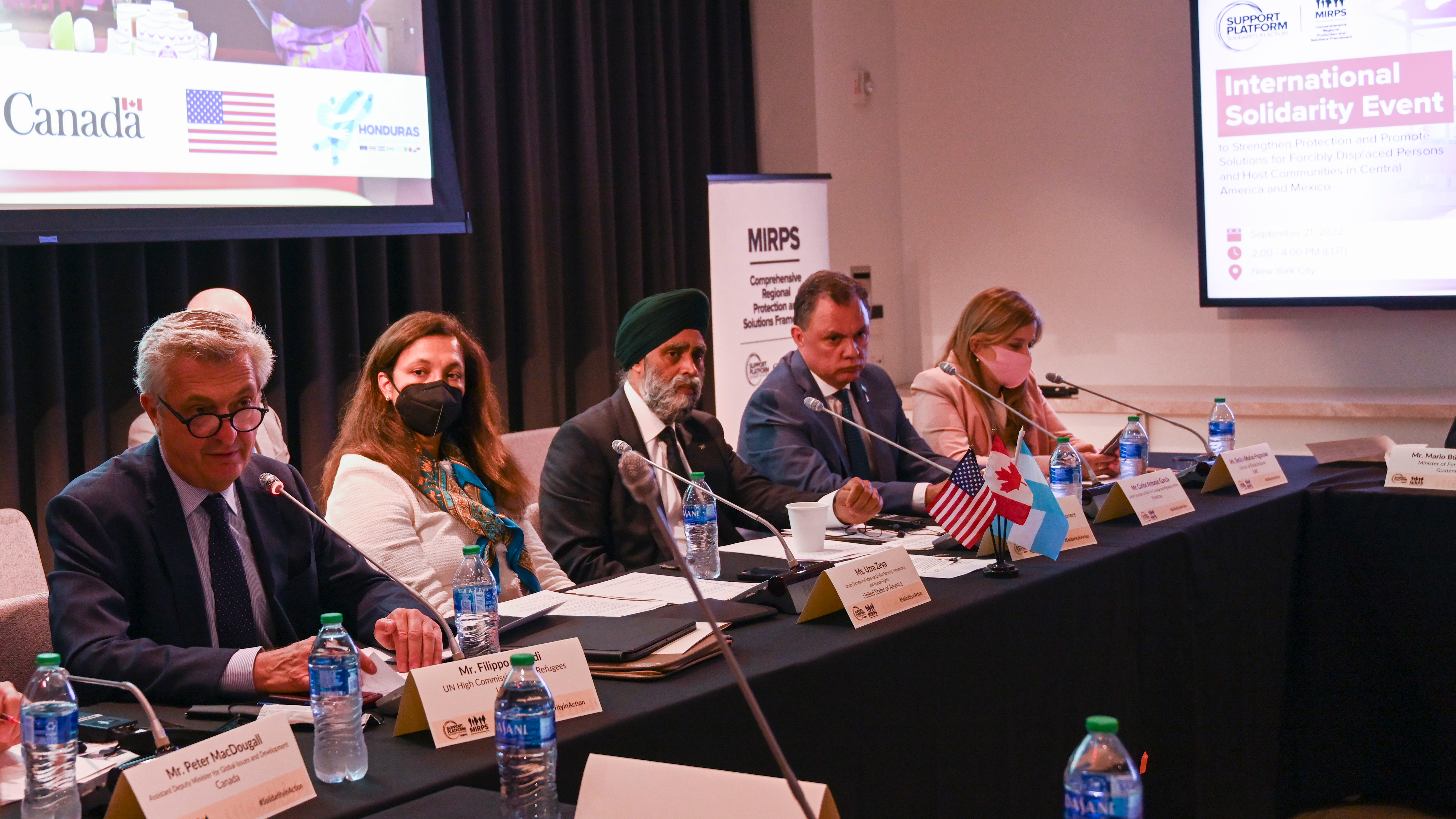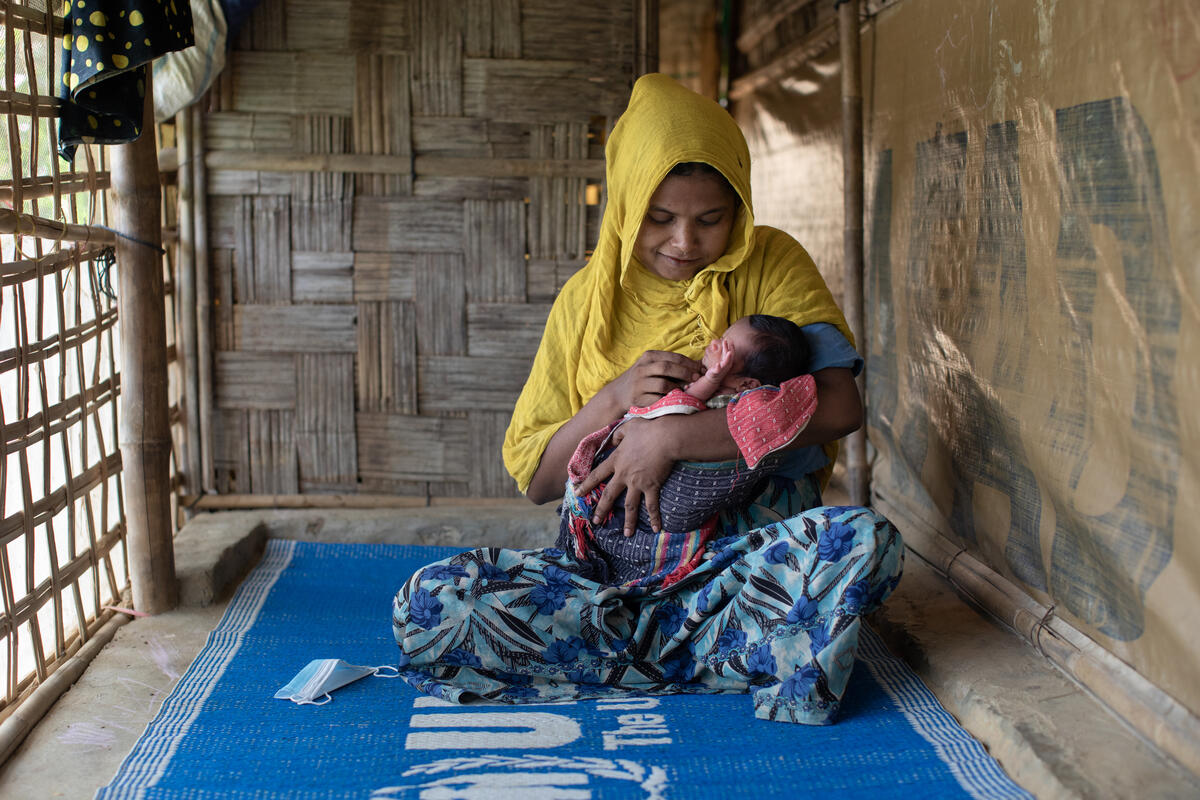Record-high pledges received for UNHCR's 2005 budget
Record-high pledges received for UNHCR's 2005 budget

GENEVA, Dec 10 (UNHCR) - A record number of states have pledged the highest-ever amount in advance - $405 million - to UNHCR's operations in 2005, allowing the refugee agency to better plan its work in the coming year.
On Friday, UNHCR announced its 2005 budget of $1.1 billion at the annual pledging conference for donors held in Geneva. A total of 48 states - including several new ones and others returning after a short absence - pledged $405,406,243, around 37 percent of the total budget. The amount pledged was also 12 percent higher than last year's initial pledges of $358 million.
"I'm greatly encouraged by this show of support," said UN High Commissioner for Refugees Ruud Lubbers. "Not only is the total amount committed a record for this first stage of the funding cycle, but the number of states that have already made firm pledges is also a record. We need to continue to broaden our donor base, but I'm delighted that new states are starting to step forward."
He welcomed new donors Croatia, Libya and Romania, as well as Poland, Slovenia and Venezuela, which are back after a few years' absence. He also noted substantially increased contributions from Algeria, the Czech Republic, Iceland, Luxembourg, Morocco, Poland and Sweden.
Over the past three years, UNHCR has been receiving a greater commitment of funds during the annual pledging conferences, which has helped reduce some of the financial uncertainties that dogged operations in the early months of the annual cycle at the turn of the century. In 2001, a mere 18 countries pledged $285 million. By 2003, as states began to respond to UNHCR's constant pleas for earlier and more predictable funding, the amount had risen to $359 million promised by 34 countries.
Another positive development in this year's pledging conference is that many pledging states stressed they would pay their contributions early in 2005, which would allow for an immediate start-up of planned activities, especially as considerable amounts of up-front funding are often needed, for example, for the purchase of relief items or to begin construction works or repairs. The predictability of funds enables UNHCR to plan for a more balanced, phased implementation of programmes throughout the year.
Many states also indicated that all or part of their initial funding commitments would be unearmarked. This would allow UNHCR to be more flexible in its operations and ensure that funds flow to where they are most needed around the world, not just to operations that are featured most prominently in the news.
Of the $1.1 billion budget presented in UNHCR's 2005 Global Appeal, $981.6 million will go to UNHCR's regular budget and $122.5 million to supplementary programmes for the planned return and reintegration of refugees to Burundi and South Sudan during 2005. The budgetary requirements for Chad/Darfur, Iraq and the Democratic Republic of the Congo will be finalised in early 2005.
Nearly 42 percent of the total 2005 budget has been allocated to programmes in Africa. "There are an unprecedented number of repatriation operations underway in Africa. Last year, refugees from Sierra Leone, Eritrea, Burundi and Angola returned in large numbers and UNHCR started a programme to help 340,000 Liberians repatriate," noted High Commissioner Lubbers in the 2005 Global Appeal. "However, returns must be matched by post-conflict reconstruction and reintegration in order to break the cycle of violence and make repatriation sustainable."
More than 12 percent of the funding will go to Central Asia, South-west Asia, North Africa and the Middle East; close to 10 percent each to Europe and the Americas; and 4 percent to Asia and the Pacific.
Another $112 million has been budgeted for two operational reserves, allowing UNHCR to respond quickly to unforeseen crises.
At the beginning of Friday's pledging conference, the High Commissioner said, "This year, thanks to generous donor support and improved financial management, UNHCR has achieved a position of relative financial stability that it has not enjoyed in many years."
However, the refugee agency is still underfunded for its 2004 programmes. So far this year, it has received US$933 million out of its budget of $1.23 billion.
There are approximately 17 million people of concern to UNHCR, down from 20 million the previous year. The current figure includes 9.7 million refugees, 1 million asylum seekers, over 1 million returnees and 5.3 million others in refugee-like situations including internally displaced people.








